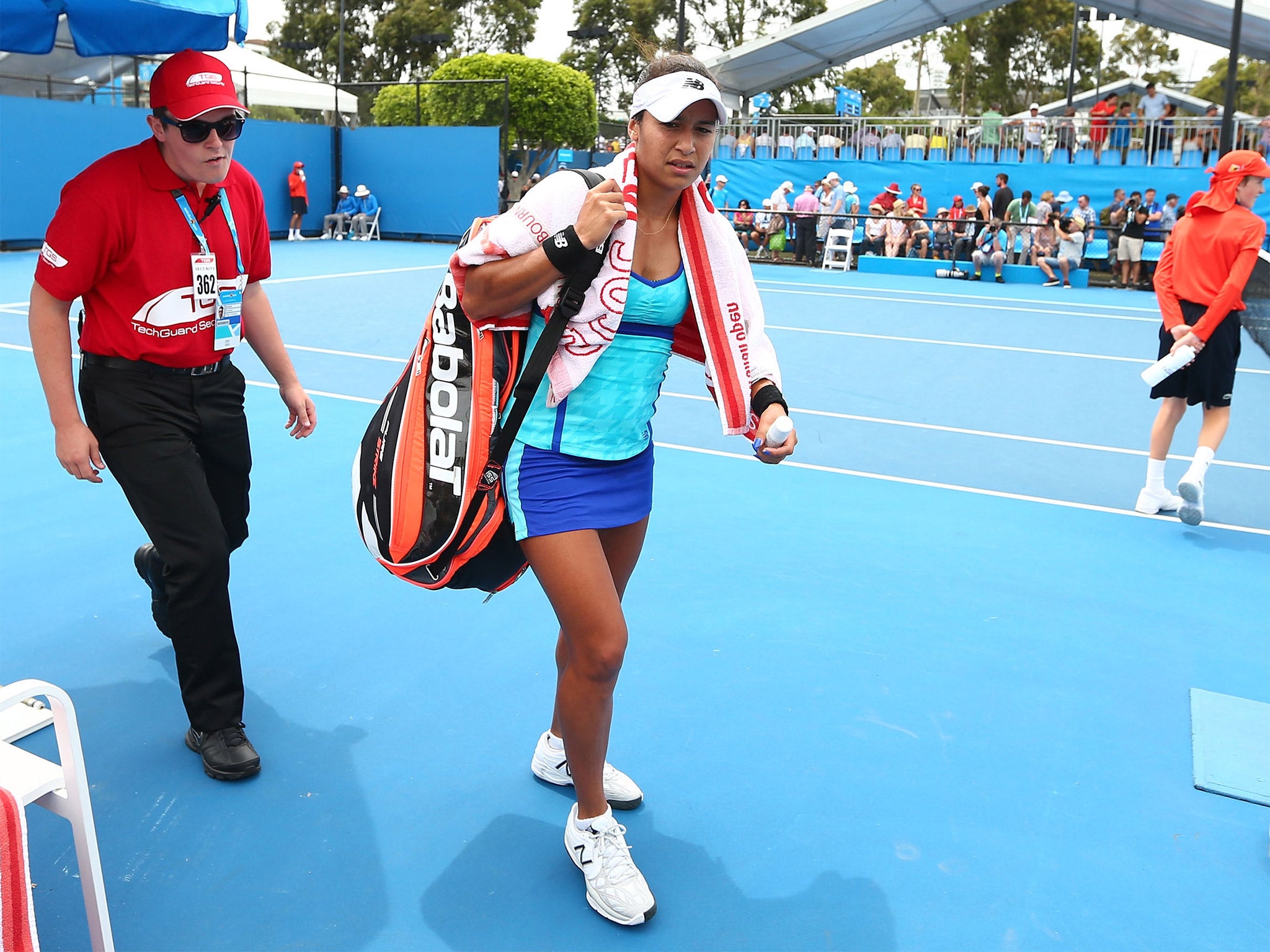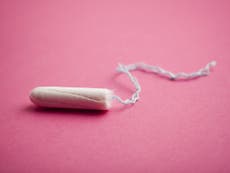Heather Watson has got us talking about periods, but many women around the world can't
Being ostracised, sleeping in cowsheds or dropping out of school because of menstruation is all too common in traditional societies

Heather Watson’s somewhat bashful mention of her “girl things” after unexpectedly falling out of the Australian Open was a first in the sporting world, where periods are still taboo and female athletes are presumably expected to keep any discomfort well-disguised.
While Ms Watson’s courage is to be applauded, were she in one of many other countries on Tuesday, tennis wouldn’t be the only thing she’d have been forbidden to undertake.
As annoying and sometimes painful as menstruation is for us in the UK, it carries much more serious consequences for countless girls and women in other parts of the world.
Depending on where you are, if you’re on your period, you might be told not to touch food or cows or plants for fear of calamity. You might be kept from working, from bathing, from washing your hair, from touching a communal water point or even from sleeping in the same house as your family.
Among the most extreme is the custom of chhaupadi, an extreme form of exclusion practised in rural parts of India and Nepal. Menstruating girls and women may be sent to sleep in cowsheds or other makeshift shelters, left to the mercy of cold and predators.
Nearly as alarming are the number of girls around the world who may drop out of school after starting their periods because there’s no private toilet or clean water so they can care for themselves, or because they can’t afford sanitary towels to keep their clothes from staining.
From our research at WaterAid, we know that 66 per cent of girls-only schools in India do not have functioning toilets. In Niger, 77 per cent of girls have nowhere at school to change their sanitary pads. In South Asia, 32.5 per cent of schoolgirls had not heard about menstruation before their first periods, and nearly all of them - 97.5 per cent - did not know the blood was coming from their uterus.
WaterAid has worked with local partners in communities across sub-Saharan Africa and South Asia to ensure schoolgirls and their families have the knowledge to take care of themselves during their periods. School projects range from building private, gender-separate toilets and taps for washing to creating hygiene clubs where girls learn how to sew reusable pads.
Change – whether at home or abroad – takes time, effort and will.
How can we possibly expect girls in more traditional societies to talk about their rights and needs if we are still hiding our tampons and pretending menstruation doesn’t exist?
Imagine if Ms Watson hadn’t had the luxury of clean flush toilets, running water, soap and sanitary supplies nearby — not to mention the other players and spectators who also quite likely had ‘Aunt Flo’ in for a visit.
Which takes us to what we can do about it.
It feels a long way away from an Australian tennis court or even a remote village in the hills of Nepal. But later this year, the UN will finalise their new commitments to reduce extreme poverty, the Sustainable Development Goals.
Creating equal opportunities for girls and women must remain central to these goals, and that also means access to clean water, sanitation and hygiene promotion.
Without safe water, basic hygienic, toilets and the ability and knowledge to keep themselves and their bodies clean, girls will continue to struggle to grow up healthy, educated and aware of their rights.
To learn more about why 2015 is a time to make your voice heard on ending extreme poverty and protecting the rights of women and girls, join #action2015.




Join our commenting forum
Join thought-provoking conversations, follow other Independent readers and see their replies